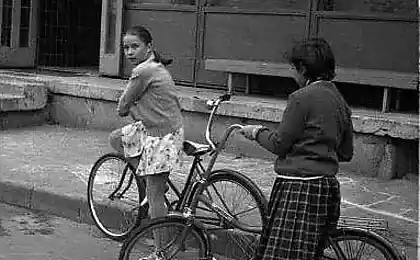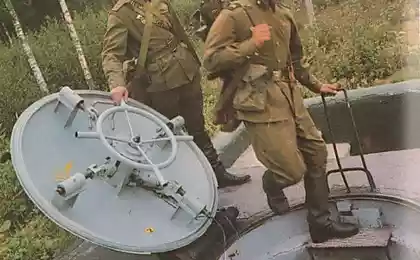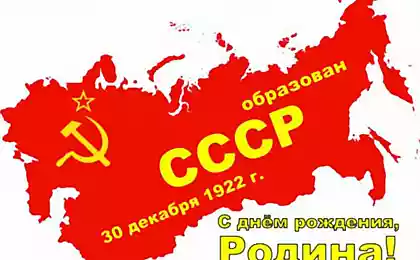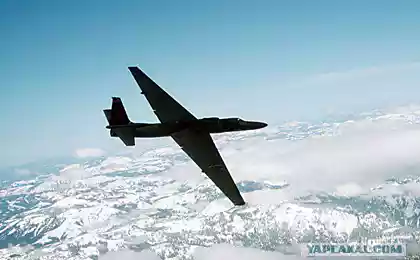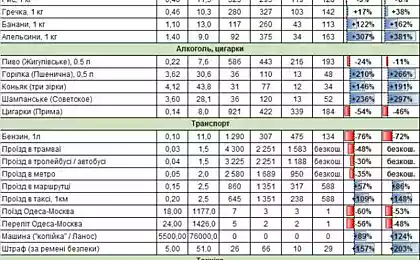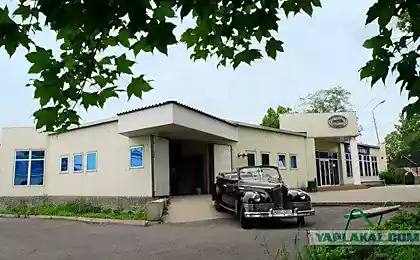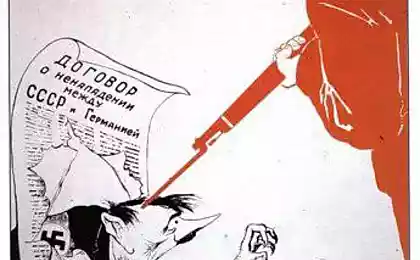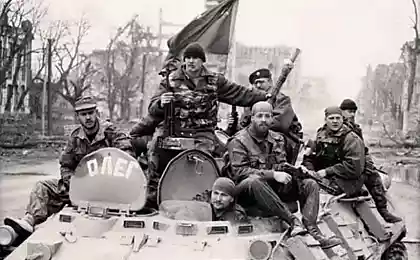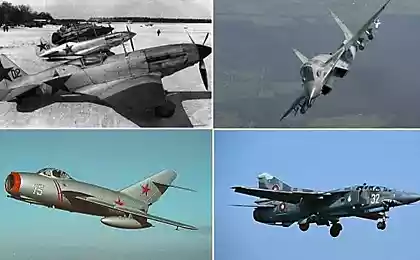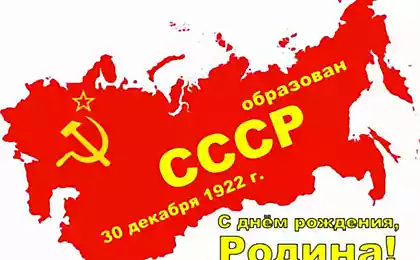920
Germany and the Soviet Union would attack India
In 1939-40 the Ministry of Foreign Affairs of the USSR and Germany are actively discussing the plan of joint operations - raising rebellion in Afghanistan and Tibet against the British colonialists in India. But by the summer of 1940, both sides have cooled to the idea, fearing the British counter.
The main ideologist rapprochement Germany and the USSR on the "Eastern Question" was Ernst Schäfer, a senior activist SSovets and occult orders "Ahnenerbe." It was he who in 1936 developed the famous SS expedition to Tibet, which was eventually carried out in 1938-39. Officially, it was devoted to the search for "the ancestral home of the Aryans," but unofficially - the Germans have studied the potential war zone.
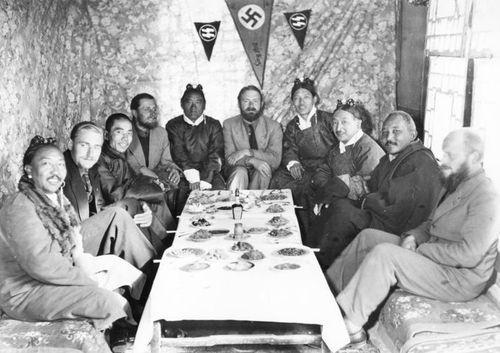
In late September 1939, when Schafer was formally in the preparatory camp SS "Leibstandarte" in Prague, the Minister of Foreign Affairs Ribbentrop held a meeting. On it were discussed the upcoming military operations in Afghanistan and Tibet, as well as the need to harmonize them with the Soviet side. In addition the Minister took part in the conversation: Fritz Grobba - curator of the eastern sector of the Ministry of Foreign Affairs, Werner Otto von Ernst Schaefer and Genting. First discussed the "Afghan option". It was assumed that the Afghan government should speak out against England. This ought to negotiate in Moscow as the greatest friend of the Central Asian country was the Soviet Union.
According to the "Tibetan version of" German Foreign Ministry did not conduct any negotiations with Moscow. But it was assumed that there had to enlist the support of Moscow. More before contacts were established with Molotov, the German Ministry of Foreign Affairs decided to combine the two themes into one.
Ernst Schäfer in the Tibetan expedition, 1938-39.
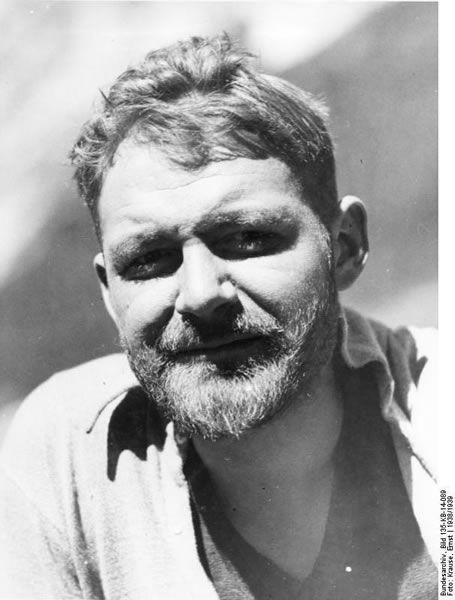
November 3 Schaefer laid plans to meet with Heinrich Himmler. During their conversation, called the date of possible performances in Asia - summer 1940.
From November-December 1939 the Soviets began to actively support all German initiatives in Asia. The conversations on this subject were at the highest level. As a rule, they discussed the German ambassador to the USSR Frederick Schulenburg and the Soviet People's Commissariat of the head, Vyacheslav Molotov. USSR actively traded with Germany - as compensation for their loyalty in the Asian campaign, he demanded a substantial military-technical assistance.
In operation there was an unexpected obstacle, and in Germany - in the face of the National Socialist ideologue Alfred Rosenberg, Dire russophobe while anglophile. Ribbentrop, on the contrary, was a Russophile and hated the British ever since his work as ambassador to England. In spite of the active opposition to Rosenberg, Ribbentrop continued to negotiate with the Soviet Union. He instructed that line State Secretary Ministry of Foreign Affairs Theodore Habicht.
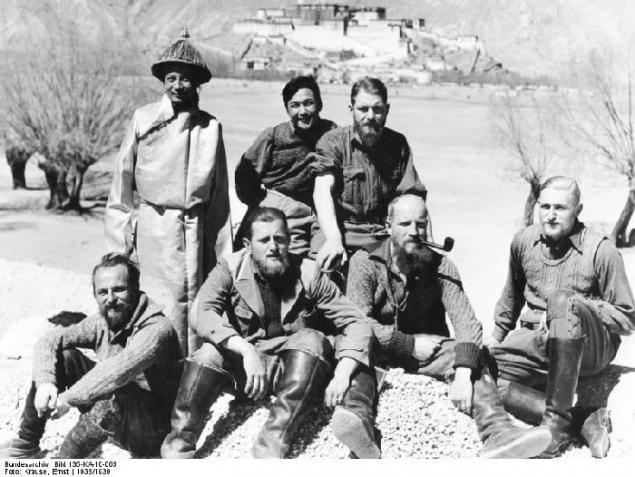
In December 1939, the ideologist of Russian-German rapprochement Peter Kleist agreed to start talks in Moscow. They were supposed to take part himself Kleist, Genteg and Habicht. Also, they had to attend Ernst Schaefer and Afghan Foreign Minister Ghulam Khan Sittik. Once again, the German Foreign Ministry was forced to hold the line against Alfred Rosenberg and Friedrich Grobba. In particular, Rosenberg proposed to begin in Afghanistan to overthrow the current government - it seemed to him to be too pro-Soviet, and bet on pro-German opposition. He feared that the implementation of the plan Ribbentrop pact the Soviet Union would play too large a role in operations in Asia.
As long as the conflict raged between the two German ministries, Kleist was negotiating with Molotov Moscow. November 29, 1939 Habicht formulated a memorandum. USSR had to give permission to transport weapons on its territory and army units. 1 and 7 December 1939 in Moscow, discussed the prospects of the two simultaneous operations (Afghanistan and Tibet).
December 18 Molotov meets Kleist. Their conversation with Molotov, Ambassador Schulenburg conveyed to Berlin:
"I have provided the information were discussed in detail with Molotov. Molotov agreed to support these plans if it is provided more precise information on the principles of the shares, as well as their methods. I propose to go back to Berlin and to develop a Molotov requested documents ».
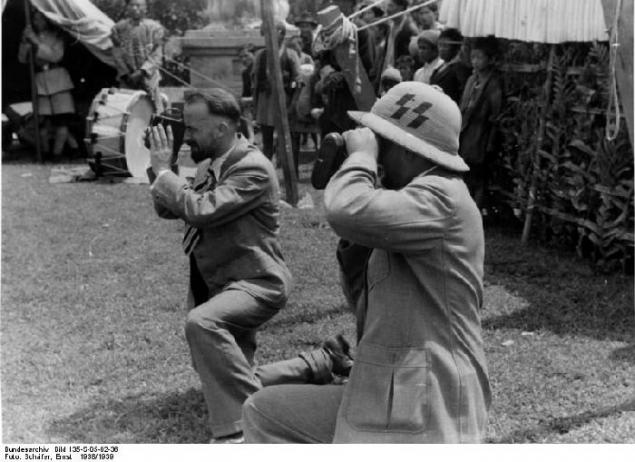
The diplomatic union of two different operations - Tibet and Afghanistan - was to undermine the colonial power of Britain in Asia. They were "package" and it was important that the USSR approved both operations. December 20, 1939 Rosenberg met with Hitler and his report on the preparations for the Asian operations. Rosenberg warns Hitler's Germany, these actions will be deprived of any chance of success in possible talks with Britain. Nazi ideology saw the destruction of the main purpose of "Jewish Bolshevism" if it is non-intervention in England.
Ribbentrop Office, as well as the SS prepared a plan of Asian operations. Schaefer wrote that the best political detachment of Germans had to make 200 people (mostly SSovtsev). It was supposed to work against the British colonial authorities "in the style of Lawrence of Arabia", ie India hands surrounding tribes. Tibetan authorities also had to provoke the performance of the Chinese and Nepalese against the British - in the provinces of North Sikkim district, Yunnan and Kansu Setchuan. To do this it was necessary to throw the German expedition also on Soviet territory through Beijing and Lanzhou (it was necessary to enlist the support and the Japanese authorities). The operation was supposed to do in the 2-3 million. Reichsmarks. From the Soviet Union needed to support monetary and technically the Afghan side.
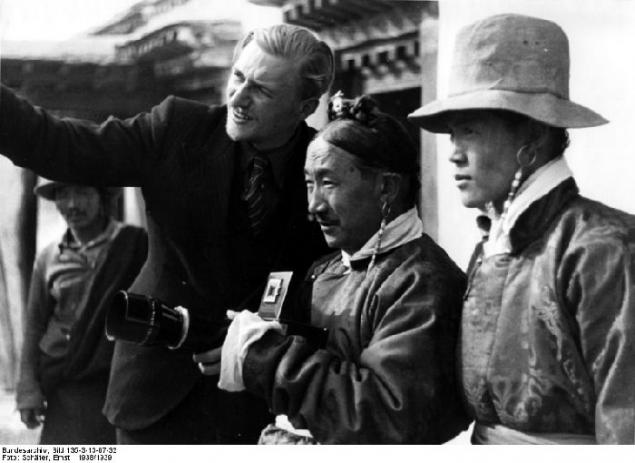
In February and March 1940, Kleist again holds several meetings with Molotov. The Soviet side unequivocal support for the Tibetan expedition led by Schaefer. With regard to the second part of the operation - Afghan USSR continued to ponder. The curator of the German sector in the People's Commissariat Alexandrov Kleist ensured that the USSR would not have any problems permission to travel Schaefer expedition. The Soviet side was even ready to send letters of recommendation to the Chinese authorities (Chiang Kai-shek, Mao Zedong and, to control the south-west China).
In Tibet for hedging (suddenly fail one way), the first German expedition route lay through SSovtsev of Alma-Ata. Second - in the Chinese Kashgar. Schaefer had to bribe the Tibetan princes begin performances against England in Southern Tibet, Sikkim and Bhutan. Germany promised to transfer to Tibet of the regions of the North of Sikkim, who at the beginning of the century was occupied by the British.
Soviet participation in the Tibetan part of the invasion was not only the Germans in transit through its territory, but also the provision of transport and fuel. In case of a successful start of hostilities Tibetans against the British, the Soviet Union agreed to "encourage" and Afghans to speak. Thus, British India would fall into the fiery arc - in the west (in the area now Pakistan) Afghans in the north of the Tibetans, in the southeast of Chinese tribes. Then it would likely start and All-Indian uprising against the British.
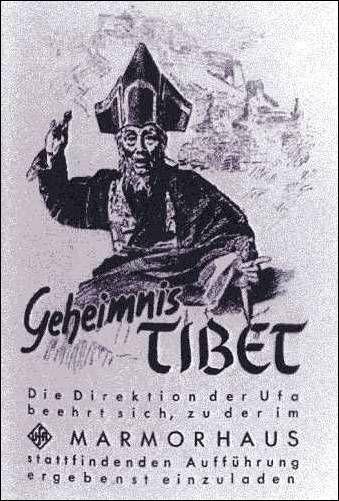
Ribbentrop, Schaefer and Kleist is now shifted start operations in May-June 1941. But in April 1940, Hitler's entourage beats the view of Alfred Rosenberg - Asian operation is extremely harmful to Germany, it undermines the potential treaty with England and dramatically strengthens the position of the Soviet Union in Central Asia. The plan was thwarted by the German Ministry of Foreign Affairs, the USSR wondered about this change the position of an ally. Last sluggish attempt to revive the project was undertaken in June and July 1940 - only in the Tibetan variant. July 10, 1940 Asian plan of war of Germany against the British in India was finally buried.
The main ideologist rapprochement Germany and the USSR on the "Eastern Question" was Ernst Schäfer, a senior activist SSovets and occult orders "Ahnenerbe." It was he who in 1936 developed the famous SS expedition to Tibet, which was eventually carried out in 1938-39. Officially, it was devoted to the search for "the ancestral home of the Aryans," but unofficially - the Germans have studied the potential war zone.

In late September 1939, when Schafer was formally in the preparatory camp SS "Leibstandarte" in Prague, the Minister of Foreign Affairs Ribbentrop held a meeting. On it were discussed the upcoming military operations in Afghanistan and Tibet, as well as the need to harmonize them with the Soviet side. In addition the Minister took part in the conversation: Fritz Grobba - curator of the eastern sector of the Ministry of Foreign Affairs, Werner Otto von Ernst Schaefer and Genting. First discussed the "Afghan option". It was assumed that the Afghan government should speak out against England. This ought to negotiate in Moscow as the greatest friend of the Central Asian country was the Soviet Union.
According to the "Tibetan version of" German Foreign Ministry did not conduct any negotiations with Moscow. But it was assumed that there had to enlist the support of Moscow. More before contacts were established with Molotov, the German Ministry of Foreign Affairs decided to combine the two themes into one.
Ernst Schäfer in the Tibetan expedition, 1938-39.

November 3 Schaefer laid plans to meet with Heinrich Himmler. During their conversation, called the date of possible performances in Asia - summer 1940.
From November-December 1939 the Soviets began to actively support all German initiatives in Asia. The conversations on this subject were at the highest level. As a rule, they discussed the German ambassador to the USSR Frederick Schulenburg and the Soviet People's Commissariat of the head, Vyacheslav Molotov. USSR actively traded with Germany - as compensation for their loyalty in the Asian campaign, he demanded a substantial military-technical assistance.
In operation there was an unexpected obstacle, and in Germany - in the face of the National Socialist ideologue Alfred Rosenberg, Dire russophobe while anglophile. Ribbentrop, on the contrary, was a Russophile and hated the British ever since his work as ambassador to England. In spite of the active opposition to Rosenberg, Ribbentrop continued to negotiate with the Soviet Union. He instructed that line State Secretary Ministry of Foreign Affairs Theodore Habicht.

In December 1939, the ideologist of Russian-German rapprochement Peter Kleist agreed to start talks in Moscow. They were supposed to take part himself Kleist, Genteg and Habicht. Also, they had to attend Ernst Schaefer and Afghan Foreign Minister Ghulam Khan Sittik. Once again, the German Foreign Ministry was forced to hold the line against Alfred Rosenberg and Friedrich Grobba. In particular, Rosenberg proposed to begin in Afghanistan to overthrow the current government - it seemed to him to be too pro-Soviet, and bet on pro-German opposition. He feared that the implementation of the plan Ribbentrop pact the Soviet Union would play too large a role in operations in Asia.
As long as the conflict raged between the two German ministries, Kleist was negotiating with Molotov Moscow. November 29, 1939 Habicht formulated a memorandum. USSR had to give permission to transport weapons on its territory and army units. 1 and 7 December 1939 in Moscow, discussed the prospects of the two simultaneous operations (Afghanistan and Tibet).
December 18 Molotov meets Kleist. Their conversation with Molotov, Ambassador Schulenburg conveyed to Berlin:
"I have provided the information were discussed in detail with Molotov. Molotov agreed to support these plans if it is provided more precise information on the principles of the shares, as well as their methods. I propose to go back to Berlin and to develop a Molotov requested documents ».

The diplomatic union of two different operations - Tibet and Afghanistan - was to undermine the colonial power of Britain in Asia. They were "package" and it was important that the USSR approved both operations. December 20, 1939 Rosenberg met with Hitler and his report on the preparations for the Asian operations. Rosenberg warns Hitler's Germany, these actions will be deprived of any chance of success in possible talks with Britain. Nazi ideology saw the destruction of the main purpose of "Jewish Bolshevism" if it is non-intervention in England.
Ribbentrop Office, as well as the SS prepared a plan of Asian operations. Schaefer wrote that the best political detachment of Germans had to make 200 people (mostly SSovtsev). It was supposed to work against the British colonial authorities "in the style of Lawrence of Arabia", ie India hands surrounding tribes. Tibetan authorities also had to provoke the performance of the Chinese and Nepalese against the British - in the provinces of North Sikkim district, Yunnan and Kansu Setchuan. To do this it was necessary to throw the German expedition also on Soviet territory through Beijing and Lanzhou (it was necessary to enlist the support and the Japanese authorities). The operation was supposed to do in the 2-3 million. Reichsmarks. From the Soviet Union needed to support monetary and technically the Afghan side.

In February and March 1940, Kleist again holds several meetings with Molotov. The Soviet side unequivocal support for the Tibetan expedition led by Schaefer. With regard to the second part of the operation - Afghan USSR continued to ponder. The curator of the German sector in the People's Commissariat Alexandrov Kleist ensured that the USSR would not have any problems permission to travel Schaefer expedition. The Soviet side was even ready to send letters of recommendation to the Chinese authorities (Chiang Kai-shek, Mao Zedong and, to control the south-west China).
In Tibet for hedging (suddenly fail one way), the first German expedition route lay through SSovtsev of Alma-Ata. Second - in the Chinese Kashgar. Schaefer had to bribe the Tibetan princes begin performances against England in Southern Tibet, Sikkim and Bhutan. Germany promised to transfer to Tibet of the regions of the North of Sikkim, who at the beginning of the century was occupied by the British.
Soviet participation in the Tibetan part of the invasion was not only the Germans in transit through its territory, but also the provision of transport and fuel. In case of a successful start of hostilities Tibetans against the British, the Soviet Union agreed to "encourage" and Afghans to speak. Thus, British India would fall into the fiery arc - in the west (in the area now Pakistan) Afghans in the north of the Tibetans, in the southeast of Chinese tribes. Then it would likely start and All-Indian uprising against the British.

Ribbentrop, Schaefer and Kleist is now shifted start operations in May-June 1941. But in April 1940, Hitler's entourage beats the view of Alfred Rosenberg - Asian operation is extremely harmful to Germany, it undermines the potential treaty with England and dramatically strengthens the position of the Soviet Union in Central Asia. The plan was thwarted by the German Ministry of Foreign Affairs, the USSR wondered about this change the position of an ally. Last sluggish attempt to revive the project was undertaken in June and July 1940 - only in the Tibetan variant. July 10, 1940 Asian plan of war of Germany against the British in India was finally buried.



